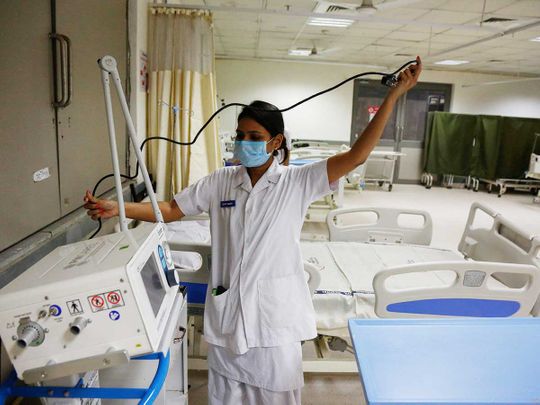
Kolkata: Amid fear of spreading adenovirus in West Bengal, four more child deaths have been reported from a Kolkata hospital from Sunday night till Monday afternoon.
Though it is yet to be confirmed that four fresh deaths, all reported from B.C. Roy Children's Hospital, were confirmed cases of adenovirus, it is learnt that all the four children were admitted with the virus-related symptoms of cough, cold and severe breathing problems.
Last week, Chief Minister Mamata Banerjee told media persons that the total adenovirus-related deaths stood at 19, out of which six were confirmed cases of the virus while the remaining had comorbidities. The same figure was also quoted in a notification issued by the state Health Department on March 11. However, after that there had been no death figure update from it.
However, unofficial sources quote the figure of deaths with related symptoms at much higher at 147 from the beginning of January till date. Out of this, the maximum are from the B.C. Roy Children's Hospital at 75, where the pressure of admission of children with related symptoms had been maximum. The second highest death report had been from Calcutta Medical College and Hospital at 25.
Highest among Indian states
A recent survey by the Indian Council of Medical Research (ICMR)-National Institute of Cholera and Enteric Diseases (NICED) has revealed that 38 per cent of the swab samples that have been tested adenovirus-positive throughout the country since from January 1 to March 9 have been reported from West Bengal making it the highest among all Indian states on this count.
Tamil Nadu comes in the distant second position with 19 per cent, Kerala at 13 per cent, Delhi at 11 per cent and Maharashtra at five per cent are in the third, fourth and fifth positions, respectively.
Adenovirus symptoms
The common symptoms of adenovirus are flu-like ones, cold, fever, breathing problems, sore throat, pneumonia and acute bronchitis. Children two years of age and below are most vulnerable to being affected by the virus. Some of the less common symptoms include bladder inflammation or infection, as well as neurologic disease (conditions affecting the brain and spinal cord).
How does it spread?
The virus can spread through skin contacts, by air through coughing and sneezing and through an infected person's stool. According to the Centers for Disease Control and Prevention, Adenoviruses are frequently resistant to common disinfectants and can remain contagious for long periods of time on infected surfaces.
Treatment
So far, there have not been any approved medicines or any specific treatment to treat the virus. Mild infections can be treated with rest and over-the-counter pain relievers or fever reducers.
Prevention
Adenovirus is a highly contagious illness, especially in its early stages. According to medical experts, Covid-appropriate behavior would be useful in preventing its spread. People should wear face masks, wash their hands with soap at regular intervals, avoid crowded places, and so on to avoid Adenovirus.












